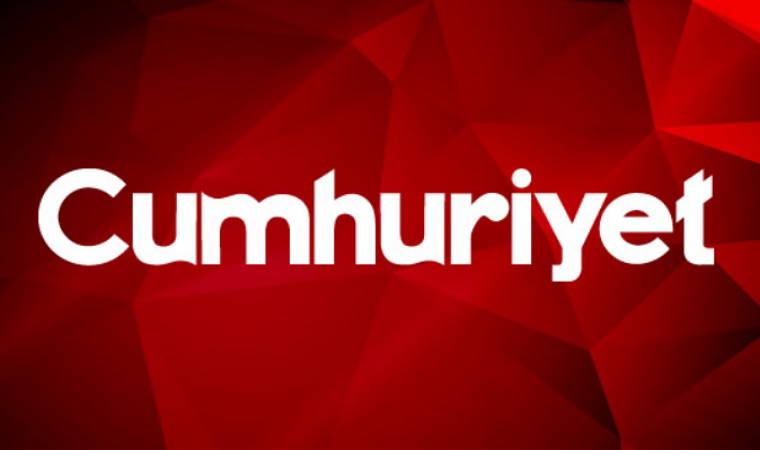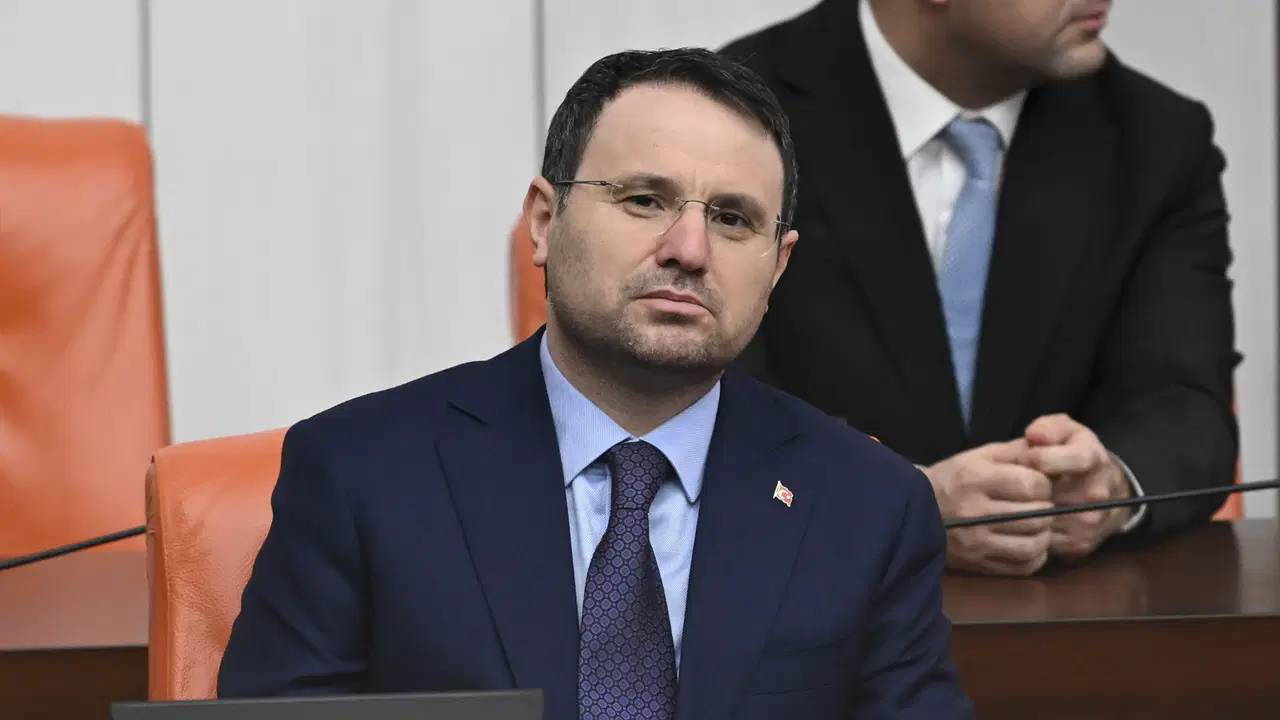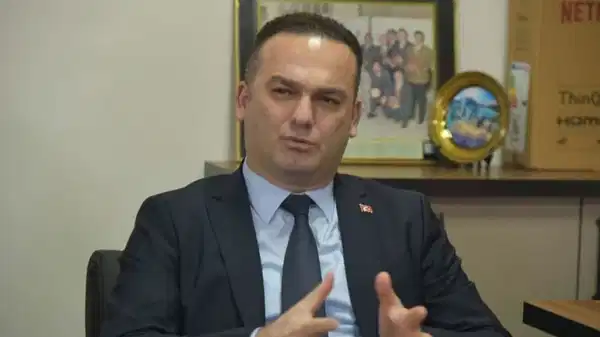 Academic Bülent Şık’s book entitled “The Chemist in the Kitchen” has appeared. In this
Academic Bülent Şık’s book entitled “The Chemist in the Kitchen” has appeared. In this
book, Şık places children’s health and diet under a food-safety focus, and seeks the answer to
many problems relating to popular health. The book serves as a guide to mothers and fathers
as to the choice of produce when it comes to the childhood obesity problem. I spoke to Bülent
Şık about the Chemist in the Kitchen.
-You have dedicated the book to the memory of academic Mehmet Fatih Traş, who
committed suicide. You are also one of those who lost their jobs in the purge of
academia. How did it make you feel to commemorate Traş in this way?
Not just individuals, but a society can lose its powers of reason. A mass psychology can come
into being whereby we become unable to see the stark truths standing before our eyes. This
country’s most crucial problem is social peace and this problem is constantly before our eyes.
But, the only way to guarantee the political rulership’s economic plunder in the country and
keep the ecological destruction it wreaks out of sight was by making violence dominate social
life and silencing the demand for peace. So adroitly does the ruling body use the language of
violence that, if a slight exception is made for the HDP, even the opposition parties fall into
line. Under such circumstances, in truth, believe me, I have given no thought to the feeling it
engenders to still be able to speak of peace and to side and be able to side with people whose
lives have been overturned for doing so. Mehmet Fatih Traş is in fact the Peace Academics’
most painful loss and it is our duty not to forget him.
How has being a decree with the force of law victim affected your life and mental
wellbeing?
It has caused a variety of difficulties but I am trying as best I can to continue with my
academic endeavours. We have our web of friendship and our solidarity to counter the ruling
body’s evil. Their time will come. I have been saying this from the outset.
-An investigation was launched into you following your serialized article that was
published in Cumhuriyet. What stage is this investigation at and are there any other
investigations being conducted into you?
You are referring to the study in which I revealed the results of the Health Ministry’s cancer
research, aren’t you?
-Yes.
Last month word came that the investigation had turned into a prosecution. There is a rather
odd situation. The investigation was initially launched at the press prosecution but the
indictment that that prosecution drafted was not accepted by the court to which it is attached
and the file was sent to the terrorism and organized crime prosecution. So, the case moved
from the press prosecution to the terrorism prosecution. The same indictment was this time
sent by the prosecutor who deals with terrorism crimes to another court and the indictment
was accepted there. This means I have become a terrorism criminal for saying, “The people’s
health is under threat in the Ergene Basin, Kocaeli and Antalya. There is a need to protect and
take precautions.” What can I say! We do not yet know why such a thing was done. We have
been unable to find out the details of the trial proceedings because it is the judicial vacation,
but I can say it’s a matter of certainty there’s going to be a trial.
“The state has become organized like a company”
-It is apparently not particularly possible to avoid the toxic chemicals you have dealt
with in the chapter “Children’s diet from natural life to the kitchen” in the book,
because you write that much of the produce we use contains chemicals. If the duty of
protecting public health falls to the Ministry of Health, why do you think the details of
analyses are not made public?
Alongside the Ministry of Health, the Ministries of Agriculture and Environment also have
responsibilities. Were the details of analyses made public, it would become abundantly
apparent just how futile the work of these institutions is. This is the most important reason.
-One of your proposed solutions for preventing children from being exposed to toxic
chemicals is the setting up of research laboratories. What functions do public
institutions currently perform along these lines?
Public institutions have various laboratories. If the current political will in the country wants
to do a decent job, there is plenty of work to be done through those institutions to protect
public and environmental health. But, we are in times in which institutions responsible for
working on behalf of the public have now fallen apart and the state has become organized
like a company. Under the prevailing circumstances, no reliable information is coming from
those institutions. For years, the Ministry of Health has been able to conceal from the public
the results of the most comprehensive cancer research it has conducted in the country and the
Ministry of Agriculture has not even released statistical data about the use of pesticides.
Heading the list of questions that tax my mind is the question of how we are to produce the
information we need to protect babies’ and children’s health or environmental health, because
this information will not come from the academic world, or will only do so in very limited
form. There is a need to set up an analytic body that will facilitate work of this kind but there
is no way I can reply on my own as to how we are to do this.
“There has never been shoddiness to this extent”
-Why is the ability for work into studying toxic substances to be conducted
independently important? Who benefits from a matter that threatens public health,
especially children’s, remaining unresolved?
Independent studies are important above all for detecting the culprits behind existing
ecological devastation and for public bodies to take precautions. As to the business remaining
unresolved, this is only in companies’ interests. It is as clear cut as this.
-How is the detection of chlorpyrifos, which harms nerve and brain development in
children, in produce we exported to the European Union and the sending back of this
produce to be accounted for? What does a year by year increase mean even though it is
banned?
Chlorpyrifos is one of the twelve most dangerous toxic chemicals for children’s health. The
use of chlorpyrifos in food production has been banned since 2016 but it is still used in our
country and traces of it emerge especially in fresh peppers. The detection of it in produce we
have exported in fact confirms this. The available stocks of chlorpyrifos should have been
taken off the market but the Ministry of Health stated clearly in a reply it gave to a
parliamentary written question that it had not done so. Public bodies have not functioned well
in the past in matters pertaining to public health, either, but there has never been sloppiness
and shoddiness to this extent.
“We are our snatching away our children’s future”
-How can the consumption of meat from animals fed with GMO fodder or that having
antibiotic additives affect human health?
Most prominent among toxic substances used in producing GMO fodder are nitrate
fertilizers, pesticides and especially glyphosate. There may be traces of glyphosate in animals
fed with GMO fodder in both their meat and offal parts. The use of pesticides, antibiotics and
anabolyzing agents is very widespread and such chemicals both leave traces in meat products
and pollute water. The pollution of water with nitrates emanating from agricultural areas or
waste along with used medicines and pharmaceutical products is not a problem that has an
easy solution. But, even though all these problems have been known about for years, none of
them is solved; in fact, they grow from year to year. We are our snatching away our
children’s future and this is where the basic problem lies. It is as though we have abandoned
the dream of an inhabitable future.
-Today, virtually everyone will eat roast meat, offal, baklava and sweets. Experts
caution that one thing is harmful but not another. What is your “Eid reply” to the
question, “What are we to eat if not that and not this?”
In full, I would wish to say do not slaughter animals. Eat little meat and if possible do not eat
any. But, as a food engineer, I could say that if the meat that is cut is not quickly cooled or
frozen, it could cause food poisoning. The durability of sacrificial meat is, depending on the
quality of the cut and the size of the pieces, at most three to four days under refrigerator
conditions while, with minced meat, it is one to two days. Meat that is to be frozen should be
kept at -18 degrees in the freezer and stacked such that cold air can circulate among it. Sugar-
containing products and sweets are things that in my view can be eaten at Eid; it’s something
that is based our culinary traditions in the final analysis and if you don’t have an illness I
don’t find eating sweets to be objectionable. But, I must once more stress that processed junk
beverages and non-alcoholic beverages contain an excessive amount of sugar and these
should in general be steered clear of.
“Making alcoholic drinks calls for finesse”
-In your article titled, “Alcoholic drinks were not invented for getting smashed,” you
mention that today these drinks are in a tight semantic trap. In Turkey, alcohol has
been and is being turned into a political symbol. Thanks to the increased prices of
alcoholic drinks many people have turned to making beer or raki at home. How healthy
is this?
There is absolutely no objection to making beer. Drinks with high alcoholic content like raki
can be made with ethyl alcohol of agricultural origin. Those doing this have actually
increased in number. But, a substance giving a bitter taste has been put into alcohol of this
type and making raki at home will get harder. The business of making raki under home
conditions by distilling alcohol should definitely not be embarked on, because there is the
risk of methanol forming and methanol can cause fatal poisoning. Making alcoholic drinks
calls for great finesse. It must not be forgotten that it is an art.















